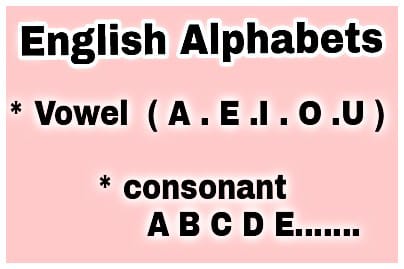8 Parts of speech | Examples | definitions.
| Parts of speech in English |
There are Eight parts of speech in english language.
What does parts of speech mean?
Durring the descution we speak different types of words . Every word is a part of speech. The term (part of speech ) refers to the role a word plays in a sentence.
What is a noun?
1. Noun:
A noun is a word that names person, place, concept, or object. Basically, anything that names a “thing” is a noun (book. Bat. John. Tree).
Nouns fall into two categories:
(Common nouns and proper nouns).
2 types of noun:
Common nouns are general names for things.
Proper nouns are specific names for individual things.
What is pronoun?
2. Pronouns:
Pronouns are the words we use intead for a noun. when the reader or listener knows which specific noun you are referring to.
Example.“john was supposed to be here at ten,” then follow it with “he is always late; next time I’ll tell him to be here an hour:
example: . (He . she . it . ) etc
What is adjective?
3. Adjectives:
Adjectives are the words that describe the noun. Pronouns.
e.g : my schools building is very beautiful . It is big . It has a wide clean garden.
In the above ( beautiful. Clean . Big ) are describing Adjectives:
What is verb?
4. Verbs:
Verbs are words that describe specific actions. like writing. winning, playing.
Not all verbs refer to literal actions, though. Verbs that refer to feelings or states of being, like to love and to be, are known as nonaction verbs.
the verbs that do refer to literal actions are known as action verbs.
What is adverb?
5. Adverbs:
An adverb is a word that describes an adjective. a verb . or another adverb.
examples:
I write quickly. Quickly is describing how i write (verb).
example: A cheetah is always faster than a lion. Always is describing how frequently a cheetah is faster than a lion.
What is preposition?
6. Prepositions:
Prepositions tells the relationship between the other words in a sentence.
Examples: the book is on the table.
Mouse is behind the stone.
Birds are in the tree.
In above three sentences . ( on . Behind. In ) are prepositions.
What is conjunction?
7. Conjunctions or joining words.
Conjunctions make it possible to build complex sentences that express multiple ideas.
I like john writing. I like Haleema writing.
I don’t like sadia's writing.
Each of these three sentences expresses a clear idea. There’s nothing wrong with listing your preferences like this, but it’s not the most efficient way to do it:
I like john writing and Haleema writing but i don’t like sadia's writing.
In the above sentence, and and but are the two conjunctions that link ideas together.
What is Interjection?
(8) Interjection.
An interjection is a word that are used to express strong feeling and sudden emotions.
It is used to express. Joy . Happines. Order. Enthusaism. Excitement and sing of exclamation (!) is placed ofter the word.
Examples:
Hey! Get off that floor
Oh! that is a surprise.
Good! Now we can move on.
Hurrah! We have won the match.
Define articles.
.Articles:
Adjectives ( A or an and the) are usually called Article.
Articles are words that describe the specific and nonspecific things. articles come in two flavors:
definite articles and indefinite articles.
English has two types of articles; definite and indefinite.
The Definite Article
The definite article is the word (the) .It limits the meaning of a noun to one particular thing.
For example, your friend might ask, “Are you going to the party this weekend? The definite article tells you that your friend is referring to a specific party that both of you know about.
The definite article can be used with singular , plural ,or uncountable nouns. Below are some examples of the definite articles.
Please give me the book
Please give me the red book; the blue one is too small.
The indefinite article takes two forms. It’s the word ( a ) when it precedes a word that begins with a consonant.
It’s the word (an) when it precedes a word that begins with a vowel.
The indefinite article indicates that a noun refers to a general idea rather than a particular thing.
For example, you might ask your friend, “Should I bring a gift to the party?” Your friend will understand that you are not asking about a specific type of gift or a specific item.
Please give me a book . any book will do.
Please give me an umberella. any umberella will do.






Comments